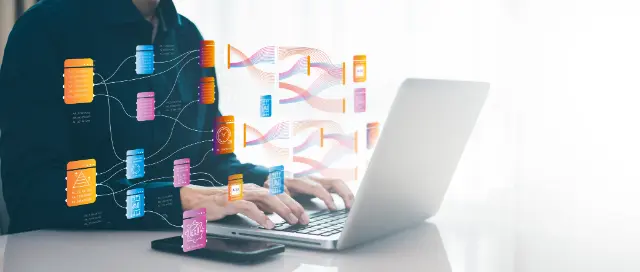Streamline Your Compliance Reporting: Compliance Reporting Automation in the Hospitality Industry
The hospitality industry is heavily regulated, with compliance reporting being a critical aspect of operations. Manual compliance reporting processes can be time-consuming, error-prone, and inefficient. Compliance Reporting Automation using Python, AI, and cloud-based solutions can revolutionize this process, ensuring accuracy, reducing compliance risks, and streamlining audit preparations.

Python, AI, and Cloud: The Power Trio for Compliance Reporting Automation
Python is a powerful programming language that is well-suited for developing automation scripts. It is easy to learn and use, and it has a large community of developers who have created a wealth of libraries and resources. This makes it an ideal choice for developing Compliance Reporting Automation solutions.
AI can be used to improve the accuracy and efficiency of Compliance Reporting Automation. For example, AI can be used to:
- Identify and extract data from unstructured documents
- Classify data into different categories
- Generate reports and summaries
Cloud platforms provide a scalable and cost-effective way to deploy and manage Compliance Reporting Automation solutions. Cloud platforms also offer a wide range of features and services that can be used to enhance the functionality of automation solutions. For example, cloud platforms can be used to:
- Store and process data
- Manage workflows
- Monitor and manage automation solutions
By combining the power of Python, AI, and cloud platforms, businesses can develop Compliance Reporting Automation solutions that are accurate, efficient, and scalable.
Unattended Bots
Unattended bots are software robots that can run without human intervention. They are ideal for automating tasks that are repetitive and time-consuming, such as data entry and report generation. Python can be used to develop unattended bots that can automate a wide range of compliance reporting tasks, such as:
- Gathering data from multiple sources
- Cleaning and validating data
- Generating reports and summaries
- Submitting reports to regulatory agencies
Attended Bots
Attended bots are software robots that require human interaction to complete tasks. They are ideal for tasks that require human judgment or decision-making, such as reviewing and approving reports. Python can be used to develop attended bots that can assist with a variety of compliance reporting tasks, such as:
- Reviewing and approving reports
- Answering questions from auditors
- Providing guidance on compliance requirements
Benefits of Cloud Platforms
Cloud platforms offer a number of benefits for Compliance Reporting Automation, including:
- Scalability: Cloud platforms can be scaled up or down to meet the needs of your business. This means that you can always have the resources you need to run your automation solutions.
- Cost-effectiveness: Cloud platforms are typically more cost-effective than on-premises solutions. This is because you only pay for the resources you use.
- Reliability: Cloud platforms are highly reliable and offer a number of features to ensure that your automation solutions are always running.
- Security: Cloud platforms offer a number of security features to protect your data and applications. This includes features such as encryption, access control, and intrusion detection.
AI Techniques for Compliance Reporting Automation
AI can be used to improve the accuracy and efficiency of Compliance Reporting Automation in a number of ways. Some specific AI techniques that can be used for this purpose include:
- Image recognition: AI can be used to identify and extract data from images, such as invoices and receipts. This can be used to automate the data entry process and improve the accuracy of reporting.
- Natural language processing (NLP): AI can be used to understand and interpret natural language text. This can be used to automate the process of reviewing and approving reports.
- Generative AI: AI can be used to generate text, such as reports and summaries. This can be used to automate the report generation process and improve the efficiency of reporting.
By using AI techniques, businesses can develop Compliance Reporting Automation solutions that are more accurate, efficient, and scalable.

Building the Compliance Reporting Automation
The process of building a Compliance Reporting Automation solution involves the following steps:
- Identify the processes to be automated: The first step is to identify the processes that are currently being performed manually and that are suitable for automation. This may involve interviewing stakeholders and reviewing existing documentation.
- Design the automation solution: Once the processes to be automated have been identified, the next step is to design the automation solution. This involves determining the specific tasks that will be automated, the data that will be used, and the workflow of the automation.
- Develop the automation solution: The next step is to develop the automation solution. This involves writing the code for the automation scripts and configuring the cloud platform.
- Test the automation solution: Once the automation solution has been developed, it is important to test it thoroughly to ensure that it is working as expected. This may involve running the automation scripts against a variety of test data.
- Deploy the automation solution: Once the automation solution has been tested and verified, it can be deployed to the production environment. This involves setting up the automation scripts and configuring the cloud platform so that the automation solution can run on a regular schedule.
Data Security and Compliance
Data security and compliance are critical considerations for any Compliance Reporting Automation solution. It is important to ensure that the automation solution is designed and implemented in a way that protects the confidentiality, integrity, and availability of data. This may involve implementing measures such as encryption, access control, and intrusion detection.
Advantages of Python over No-Code RPA/Workflow Tools
Python offers a number of advantages over no-code RPA/workflow tools for building Compliance Reporting Automation solutions. These advantages include:
- Flexibility: Python is a general-purpose programming language that can be used to develop a wide range of automation solutions. This flexibility allows businesses to customize their automation solutions to meet their specific needs.
- Scalability: Python is a scalable language that can be used to develop automation solutions that can handle large volumes of data. This scalability is important for businesses that need to automate complex compliance reporting processes.
- Cost-effectiveness: Python is a free and open-source language. This makes it a cost-effective option for businesses that are looking to develop automation solutions.
Algorythum’s Approach
Algorythum takes a different approach to Compliance Reporting Automation than most BPA companies. Algorythum’s approach is based on the following principles:
- Use of Python: Algorythum uses Python to develop Compliance Reporting Automation solutions. This allows Algorythum to develop customized, scalable, and cost-effective solutions that meet the specific needs of our clients.
- Focus on data security and compliance: Algorythum understands the importance of data security and compliance. Algorythum’s solutions are designed and implemented in a way that protects the confidentiality, integrity, and availability of data.
- Client-centric approach: Algorythum takes a client-centric approach to Compliance Reporting Automation. Algorythum works closely with our clients to understand their specific needs and to develop solutions that meet those needs.
Algorythum’s approach has resulted in a number of successful Compliance Reporting Automation implementations for clients in the hospitality industry. Algorythum’s clients have experienced significant benefits from these implementations, including:
- Reduced compliance risks: Algorythum’s solutions have helped clients to reduce their compliance risks by automating complex compliance reporting processes.
- Improved efficiency: Algorythum’s solutions have helped clients to improve their efficiency by automating repetitive and time-consuming tasks.
- Increased accuracy: Algorythum’s solutions have helped clients to improve the accuracy of their compliance reporting by eliminating human error.
If you are looking for a partner to help you with your Compliance Reporting Automation needs, Algorythum is the right choice. Algorythum has the experience and expertise to help you develop a customized, scalable, and cost-effective solution that meets your specific needs.

The Future of Compliance Reporting Automation
The future of Compliance Reporting Automation is bright. As technology continues to develop, new possibilities will emerge to further enhance the capabilities of automation solutions. Some of the potential future possibilities for Compliance Reporting Automation include:
- Use of artificial intelligence (AI): AI can be used to improve the accuracy and efficiency of Compliance Reporting Automation in a number of ways. For example, AI can be used to:
- Identify and extract data from unstructured documents
- Classify data into different categories
- Generate reports and summaries
- Integration with other technologies: Compliance Reporting Automation can be integrated with other technologies to create even more powerful solutions. For example, Compliance Reporting Automation can be integrated with:
- Data analytics tools to identify trends and patterns in compliance data
- Business intelligence tools to create interactive dashboards and reports
- Robotic process automation (RPA) tools to automate other tasks related to compliance reporting
By leveraging these future technologies, businesses can develop Compliance Reporting Automation solutions that are even more accurate, efficient, and scalable.
Subscribe to Us
To stay up-to-date on the latest trends in Compliance Reporting Automation and other industry-specific automation topics, subscribe to our blog.
Contact Us
To get a free feasibility and cost estimate for your custom Compliance Reporting Automation requirements, contact our team today.

Algorythum – Your Partner in Automations and Beyond
At Algorythum, we specialize in crafting custom RPA solutions with Python, specifically tailored to your industry. We break free from the limitations of off-the-shelf tools, offering:
- A team of Automation & DevSecOps Experts: Deeply experienced in building scalable and efficient automation solutions for various businesses in all industries.
- Reduced Automation Maintenance Costs: Our code is clear, maintainable, and minimizes future upkeep expenses (up to 90% reduction compared to platforms).
- Future-Proof Solutions: You own the code, ensuring flexibility and adaptability as your processes and regulations evolve.









